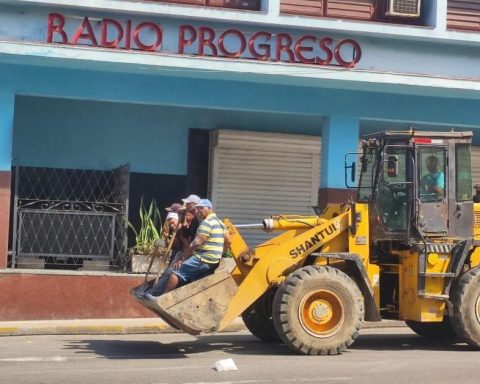The president of the Senate, Rodrigo Pacheco (PSD-MG) said this Thursday (30), after a meeting with party leaders, that senators do not accept ending parity in the composition of the joint committees that analyze the Provisional Measures (MPs) edited by the federal government. The divergence in the functioning of these collegiate bodies, made up of equal numbers of federal deputies and senators, has generated an impasse in the processing of MPs, which may hinder the government’s legislative agenda in the National Congress.
“I consulted the leaders of the Federal Senate in relation to the proposed amendment to the rules of procedure, the alteration of the culture always practiced in the National Congress, the parity between deputies and senators in the joint committees of the National Congress, and no leader supported this idea. So it is not possible, of course. For our part, we agree with this idea of amending the bylaws that establish the same number of senators and deputies in the joint commissions, with the exception of the Joint Budget Commission. it is the equal strength of the Chamber and the Senate to debate national issues”, he told journalists in the early afternoon, after the meeting.
Last week, the President of the Senate decided that the analysis of provisional measures sent by the government of President Luiz Inácio Lula da Silva will once again follow the rite provided for in the Federal Constitution, that is, they will pass through joint committees, collegiate bodies with members of the Chamber and the Senate, on an equal basis (same number of members from each House).
Since 2020, to streamline the work of parliamentarians due to the covid-19 pandemic, the analysis of MPs in joint committees has been withdrawn. Thus, provisional measures began to be analyzed directly in plenary – first in the Chamber, for 90 days, and then in the Senate, for 30 days –, with amendments allowed. The MPs have immediate effect, with the force of law, but need to be approved by Congress within 120 days in order not to lose validity. The measure was justified, at the time, as extremely exceptional due to emergency health measures. The maintenance of this model, however, came to be defended by the mayor, Arthur Lira (PP-AL), to make voting more agile, according to him. With the Senate’s refusal, Lira even suggested this week that there be a change in the proportionality of these joint commissionswith the presence of three deputies for each senator, as occurs in the Budget.
Deadlines
Lira and other party leaders in the Chamber also want to establish a deadline for the analysis of MPs by the committees, which does not exist today. On this point, there is agreement between the two Houses, according to Pacheco.
“So, once the joint commissions are done and these processing deadlines are defined, we are going to do something that I believe resolves this impasse. And, eventually, the government can make use of bills with constitutional urgency, which is also part of Constitution. Every path that finds support in the Constitution we are obliged to accept”, he pointed out.
According to Pacheco, the issue of deadlines is an old defense of the Senate. He cited a Proposal for an Amendment to the Constitution (PEC 91/2019), already approved by both Houses, which awaits promulgation. This initiative defines a period of 40 days for analysis of MPs in the mixed commission, 40 days for the Chamber of Deputies, 30 days for the Senate and ten more for final amendments. After the meeting of leaders, the President of the Senate, who also presides over the National Congress, determined the installation of joint committees to analyze MPs.
“Now it is up to the leaders to nominate the members of the joint commissions. If there is no indication, the party leaders will be self-appointed. to have the commitment to do a job well done, but quickly for the appreciation of the Chamber and the Senate. So I believe that this progress, this solution, will be fulfilled within the Constitution”.
On the government side, the Minister of the Institutional Relations Secretariat, Alexandre Padilha, who participated in the meeting of Senate leaders, said he hoped for a joint construction between the Chamber and the Senate to overcome the impasse. Padilha recalled that there are 12 MPs edited by President Lula this year, including the one that reorganized the number of ministries, the one on the expansion of the value of Bolsa Família and the one that resumes the Minha Casa Minha Vida housing program. According to the minister, some of these measures could be converted into bills so as not to run the risk of losing their validity. “If it is not possible, from a quantitative point of view, to install the 12 joint commissions at the same time, the government has as an alternative, in discussion with both the Chamber and the Senate, that some of these provisional measures can be transformed into projects of constitutional urgency law, because the procedure is faster and there would be no need for the joint commission for that”.
















